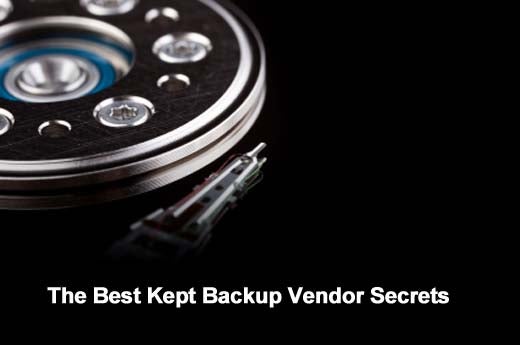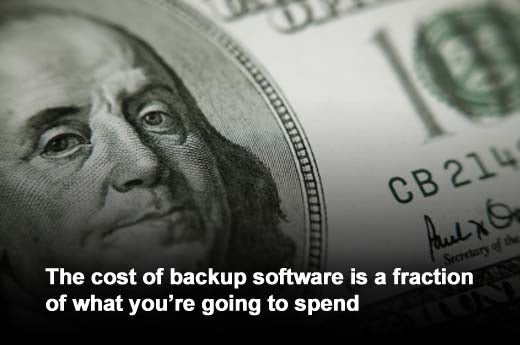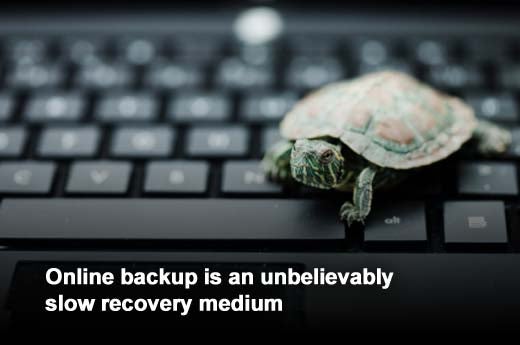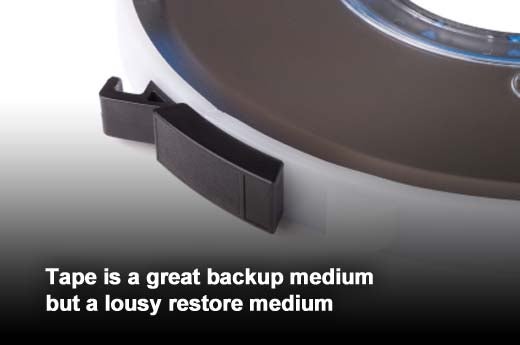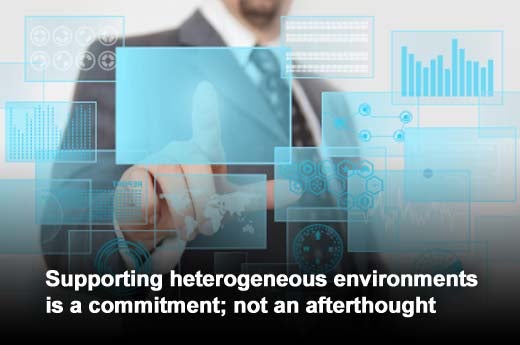Have you ever had the feeling that you were left in the dark on something while everyone around you was in the know? Every industry has its secrets, and the backup and recovery space is no different. And while many backup providers do a great job of keeping these secrets, well, secret, Unitrends believes companies should be well informed on the industry’s intricacies so they can make the best purchasing decisions possible. As such, the company is blowing the door wide open on six longtime industry secrets. Take a look.
Click through for six secrets the backup industry doesn’t want you to know, as identified by Unitrends.
Reality check: The cost of your backup software is only the tip of the iceberg in terms of your capital and operating costs. You’re also going to need to purchase an application server, an operating system, a storage controller, a lot of storage and some pretty advanced networking – and then spend time and money figuring out how to integrate these components to optimize functionality and performance.
Bottom line: Don’t purchase a solution that puts you in the red. Your deficit will only increase from there.
Most data protection companies charge per-client fees so they’ll receive additional revenue as their customers grow and add new computers to their account. It’s also common for vendors to charge upgrade fees for different types or new versions of operating systems and applications.
Bottom line: Don’t fall into this trap. There are backup vendors out there that have simple pricing schemes and won’t nickel and dime you.
Have you ever experienced a problem and then, when trying to resolve the issue, been bounced around to different vendors because no one wants to take the blame? We all have. That’s because most vendors create the appearance of customer support without actually delivering on it. Instead, they view customer support as a cost center, one that can be transformed into a consulting engagement by holding customers’ feet to the fire when they need help the most.
Bottom line: Find a backup vendor that is committed to customer support and service and that offers immediate help and speedy resolutions when problems arise.
While online or cloud-based backup is touted as the “next big thing” in data protection, there’s one big flaw that everyone is missing: It’s an extremely slow medium to recover data. If a disaster strikes and you need to recover your data, it can often take online backup vendors a month or more to ship your first terabyte up through the Internet and finally on to you. And most companies don’t have a month to wait to get their business back up and running. It’s like putting your money in the bank and then not being able to take it out when you need it.
Bottom line: If you are going to use online backup, pair it with an on-premise backup appliance to expedite data recovery.
Gartner has estimated that 10 to 50 percent of all tape restores fail. The reality is that tape is not a reliable restore medium – backups go in but often don’t come out. Additionally, tape has tremendous operational expenses and is prone to human error due to accidental over-writing, mislabeling and other problems caused by rotational tape load/unload strategies.
Bottom line: Not only is tape an unreliable restore mechanism, but a lot of modern backup and recovery strategies – such as deduplication, instant recovery using failover virtualization and incremental forever strategies – can’t be leveraged with it. Look elsewhere for your restore needs.
Many vendors today will claim that they support hybrid data centers. But, for a backup vendor, supporting heterogeneity means more than protecting data across physical, virtualized and cloud-based environments. It also means supporting various versions of operating systems, servers, applications, storage platforms and hypervisors – and maintaining that support regardless of whether the product is years old or new on the market.
Bottom line: Don’t accept a vendor’s claim to support heterogeneous environments at face value. Push them to prove their commitment so you know your infrastructure will be supported at all times.


